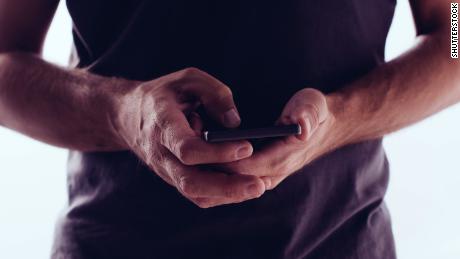
(CNN)If you get a text message saying you've come into contact with someone who's tested positive for Covid-19, don't click the link.
It's a scam, officials say.
Warnings about such texts have been circulating from Kansas to Maine. And it's just one of numerous coronavirus-related scams that local, state and federal officials report are attempting to prey on vulnerable Americans.
Text messages and robocalls offering testing kits, bogus treatments or financial relief and claiming to be from government agencies have been reported to the Federal Trade Commission (FTC) and other government agencies. Other text message hoaxes may instruct people to stock up on supplies. And now that stimulus checks are in the mail, scammers are trying new tactics to get their hands on that money and people's personal information.
The FTC, the main national agency that tracks and responds to alleged consumer scams, has already collected more than 20,000 complaints from all 50 states related to coronavirus, according to data the agency released last week. Almost half of the complaints from consumers say they've lost money, at a midpoint of about $560 per reported scam.
Here are some common scams floating around and how to avoid them.
The Covid-19 contact scam
One of the scams going around is a text message that tells the recipient that they've come into contact with someone who has tested positive or shown symptoms for Covid-19.
"Someone who came in contact with you tested positive or has shown symptoms for COVID-19 & recommends you self-isolate/get tested," one text reported to the Kansas Attorney General's office reads.
The message then contains a website link that claims to provide information.
Kansas authorities cautioned residents not to respond to the message or click on the bogus link, instead recommending that they contact the attorney general's office or local authorities.
The Thomaston Police Department in Maine is among authorities warning about this particular scam, sharing a photo of a similar text in a Facebook post.
"DO NOT click the link! It is not a message from any official agency. It is however a gateway for bad actors to find their way into your world," the police department said in its post.
Thomas Eagar, a patrol officer with the department and a fraud investigator with Maine's Department of Health and Human Services, told CNN he encountered the picture, which was taken in Texas, through the health department's fraud investigation unit.
The fake messages from government agencies
Be on the lookout for emails, text messages or calls that claim they're from the US Centers for Disease Control and Prevention, the World Health Organization (WHO) or other governmental agencies.
Here's one robocall reported by the FTC claiming to be from the Social Security Administration:
"Hello. This is a call from the Social Security Administration. During the difficult times of the coronavirus, we regret to inform you that we have got an order to suspend your socials immediately within 24 hours due to suspicious and fraudulent activity found on your social. We are contacting you as this case is critical and needs your urgent attention," the caller says, followed by a phone number that the recipient is urged to call for more information about the case.
One text scam that the Federal Communications Commission says it recently learned of claims to be from the "FCC Financial Care Center" and offers $30,000 in Covid-19 relief -- even though the FCC is providing no such relief to consumers. The agency says the text is "likely a phishing attempt to get personal or banking information from unsuspecting victims."
The Better Business Bureau says it's gotten numerous reports of a scam impersonating the US Department of Health and Human Services. Recipients of the text message are told they must take a "mandatory online COVID-19 test" using the provided link. There is no online test for the coronavirus.
Bad actors are also impersonating the WHO, asking people for donations or directing them to malicious websites through fake texts, emails and phone calls. The WHO stated that it would never do any of these things, noting that the only call for donations the organization has issued is the COVID-19 Solidarity Response Fund.
The stimulus and financial relief scams
Other fraudulent actors are taking advantage of the economic and financial insecurity surrounding the pandemic.
The Federal Bureau of Investigation in San Diego warned last month that scammers were sending text messages promising money or financial rewards through Covid-19 stimulus packages.
The agency shared on Twitter what appeared to be a text message offering "$110 goodies from Costco." The message said the offer was the retailer's "stimulus package for Costco loyal customers."
The message appeared to contain a link to fill out a survey, which the FBI said contained "malware, ransomware or other fraudulent methods to steal personal and financial information."
The FCC said it was aware of robocall scams offering Covid-19-related financial relief options, including work-from-home opportunities, student loan repayment plans and debt consolidation offers.
Small businesses have also been targeted, the agency said. Some have gotten calls about virus-related funding or loans and online listing verification.
Here's an example of one such robocall reported by the FTC:
"Hello. Please do not hang up. If you are a small business that has been affected by the coronavirus, press 1 to assure that your Google listing is correctly displaying. Otherwise customers may not find you online during this time," the caller says. "Press 1 to ensure your Google listing is displaying properly during this coronavirus outbreak. Press 2 to be removed from our list."
The bogus cures and products
The FTC, FCC and US Food and Drug Administration (FDA) have warned of hoax test messages, scam robocalls, fake websites and phishing emails that offer free home testing kits, promote fake cures, sell health insurance or make other bogus claims.
One particular robocall regarding free virus testing kits is taking aim at people with diabetes, offering a free Covid-19 test kit with a free diabetic monitor, the FCC said on its website. Another claims to offer free at-home tests for Medicare recipients; listen to that audio here. The FDA has not authorized any at-home test for Covid-19.
Other such calls market fake cures or measures and ask for payment over the phone. In one example, scammers are offering HVAC duct cleaning as a way to protect your home from the virus, the FCC said.
How to avoid scams
The FCC, FTC and the FBI have been listing common scams on their websites, so if you receive a text, email or phone call that seems suspicious, it's a good idea to check and see if it's been reported already.
The agencies offer these tips to protect yourself from scams:
- Don't respond to calls or messages from unknown or suspicious numbers.
- Even if the number looks legitimate, scammers often spoof phone numbers to trick you into responding. Keep in mind that government agencies will not call you to ask for personal information or money.
- Do not give your username, password, date of birth, Social Security number, financial data or other personal information over email, text message or phone.
- If you're being pressured to share information or make a payment immediately, that's a red flag.
- Don't open attachments or click on links in text messages or emails from sources you don't recognize.
- Verify web addresses and type them character-by-character into your browser.
- Check for common misspellings or wrong domain names in a link. An address that should end in ".gov" might end ".com" instead.
- Do your research before donating to a cause or a charity. Call or look at its website to verify that it's legitimate. And never donate in cash, by gift card or by wiring money.
- If you get a message from a friend that seems out of character, call them to make sure they weren't hacked.
- There are no products that have been proven to treat or prevent Covid-19 currently, so ignore any offers for products that claim to do so.
You can also filter or block messages from being sent to your phone again, either through your phone settings, your wireless provider or a call-blocking app. If you get unwanted messages, you can report them as junk or spam and also register a complaint with the FCC, FTC or FBI.
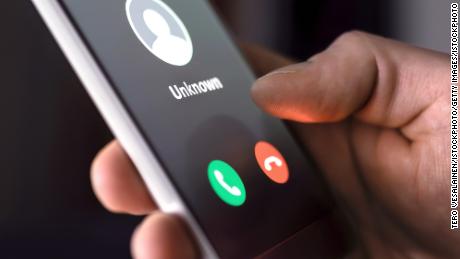
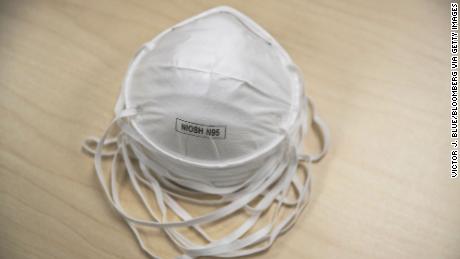
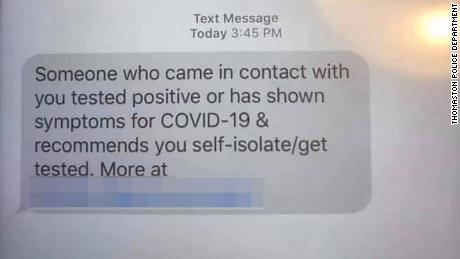
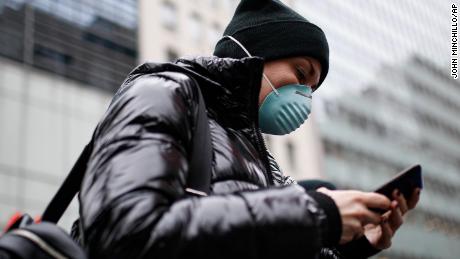

No comments:
Post a Comment